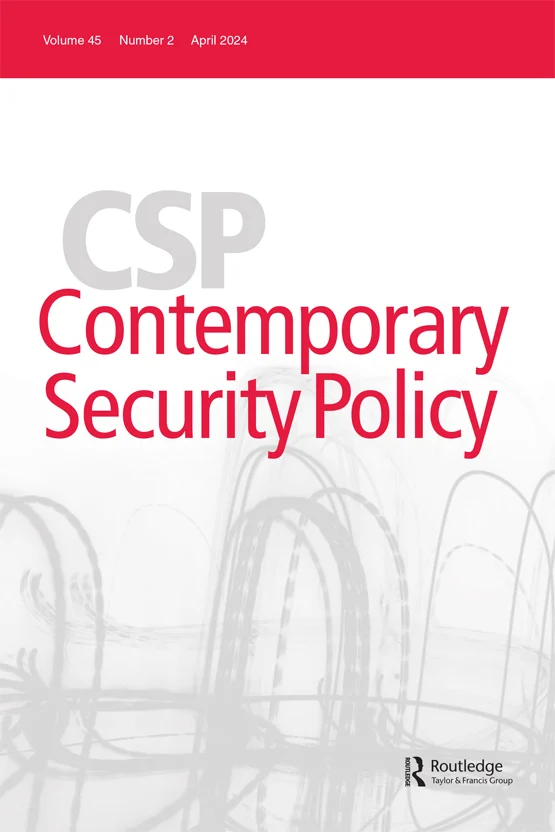在欧盟候选国和独立外交之间:第三国与欧盟在欧安组织的立场一致
IF 5
1区 社会学
Q1 INTERNATIONAL RELATIONS
引用次数: 3
摘要
摘要本文在欧洲安全与合作组织(OSCE)的外交声明中考虑了欧盟成员国和第三国之间的差异化合作。它使用一个关于欧安组织常设理事会会议干预措施的新数据集,分析了第三国何时以及为什么与欧盟立场一致。观察到的结盟模式突显了第三国加入欧盟外交联盟的动机的复杂性,例如它们在制度上与该组织的接近程度,或者它们自己参与了地区冲突。为此,本文探讨了在多边安全组织中与欧盟进行差异化外交合作的局限性。它还指出,欧盟在试图通过外交接受和其他国家放大自己的观点,使自己成为欧洲和国际安全的相关参与者时,面临着限制。本文章由计算机程序翻译,如有差异,请以英文原文为准。
Between EU candidacy and independent diplomacy: third country alignment with EU positions at the OSCE
ABSTRACT This article considers differentiated cooperation between European Union (EU) member states and third countries in diplomatic statements at the Organization for Security and Cooperation in Europe (OSCE). Using a novel dataset on interventions in OSCE Permanent Council meetings, it analyzes when and why third countries align with the EU's positions. The observed alignment patterns underline the complexity of third country motivations to form part of the EU's diplomatic alliances, such as their institutional proximity to the organization, or their own involvement in regional conflicts. In so doing the article explores the limits of differentiated diplomatic cooperation with the EU in multilateral security organizations. It also points to the constraints the EU faces when trying to establish itself as a relevant player in European and international security through diplomatic acceptance and amplification of its own views by others.
求助全文
通过发布文献求助,成功后即可免费获取论文全文。
去求助
来源期刊

Contemporary Security Policy
Multiple-
CiteScore
14.60
自引率
6.80%
发文量
22
期刊介绍:
One of the oldest peer-reviewed journals in international conflict and security, Contemporary Security Policy promotes theoretically-based research on policy problems of armed conflict, intervention and conflict resolution. Since it first appeared in 1980, CSP has established its unique place as a meeting ground for research at the nexus of theory and policy.
Spanning the gap between academic and policy approaches, CSP offers policy analysts a place to pursue fundamental issues, and academic writers a venue for addressing policy. Major fields of concern include:
War and armed conflict
Peacekeeping
Conflict resolution
Arms control and disarmament
Defense policy
Strategic culture
International institutions.
CSP is committed to a broad range of intellectual perspectives. Articles promote new analytical approaches, iconoclastic interpretations and previously overlooked perspectives. Its pages encourage novel contributions and outlooks, not particular methodologies or policy goals. Its geographical scope is worldwide and includes security challenges in Europe, Africa, the Middle-East and Asia. Authors are encouraged to examine established priorities in innovative ways and to apply traditional methods to new problems.
 求助内容:
求助内容: 应助结果提醒方式:
应助结果提醒方式:


